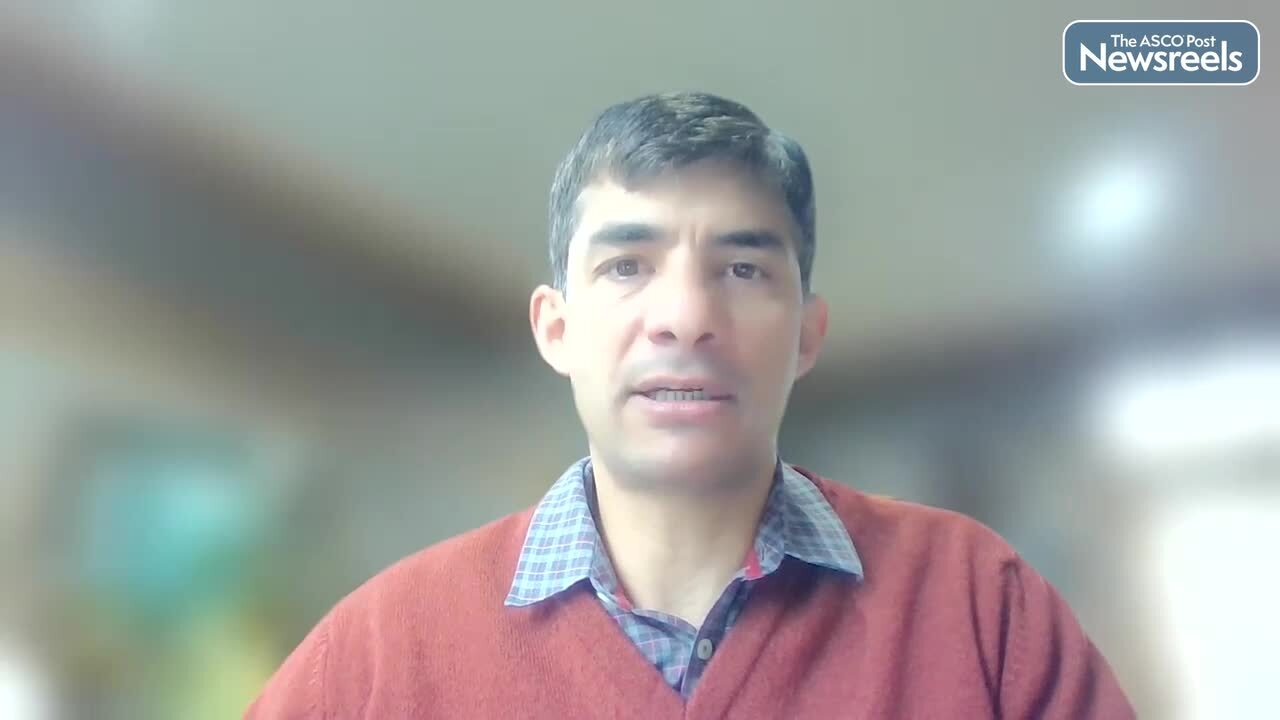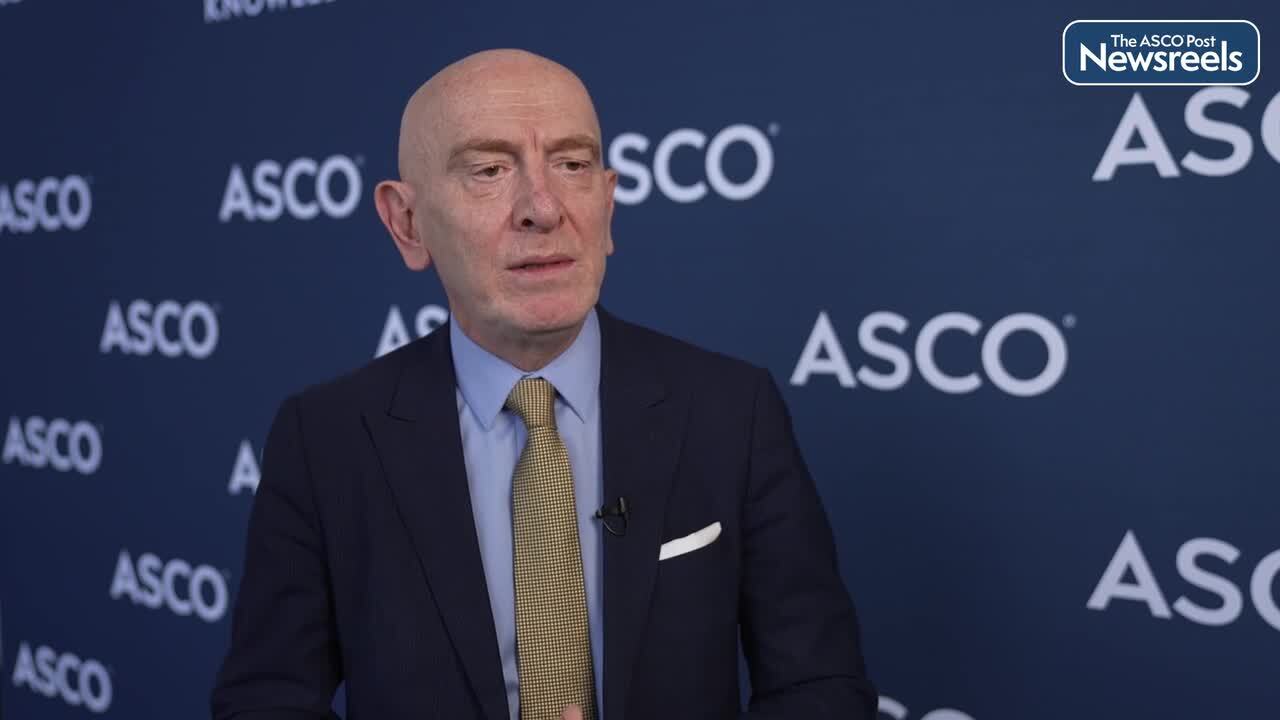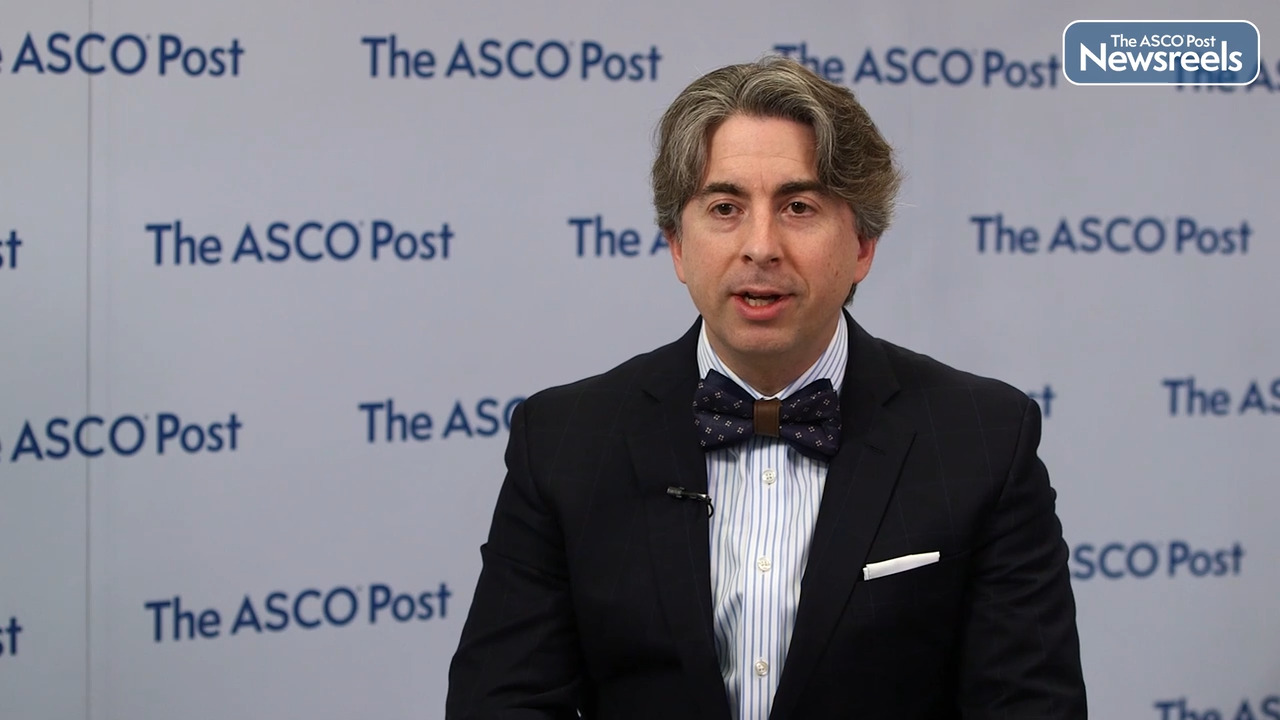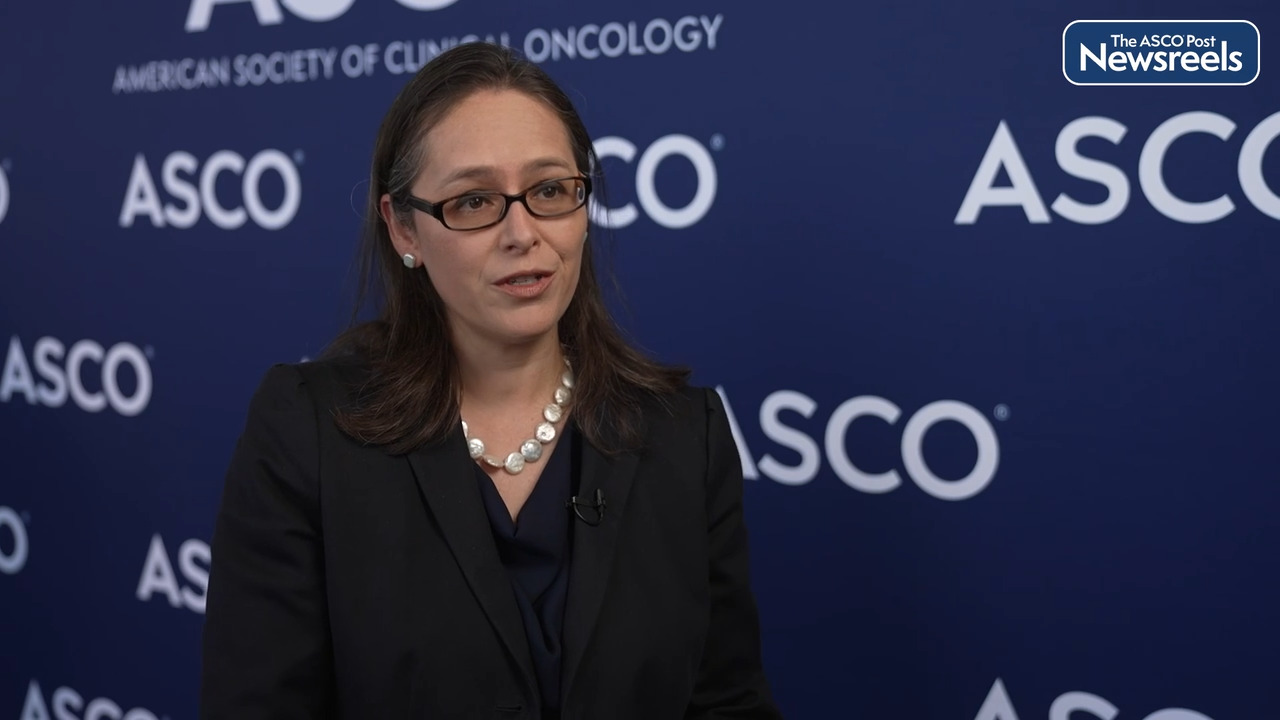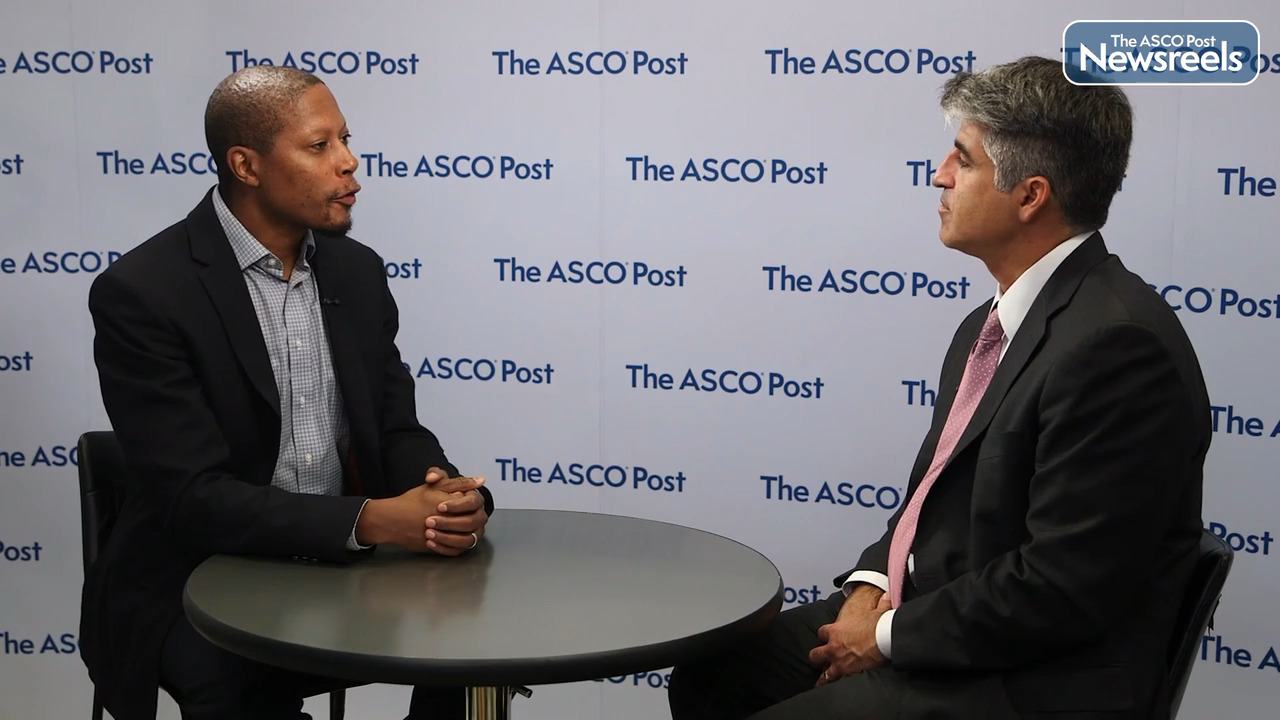Transcript
Disclaimer: This video transcript has not been proofread or edited and may contain errors.
Lisa A. Carey MD:
Dennis, it is such a pleasure to have the chance to talk with you about your presentation here at ASCO 2023 of the NATALEE trial. We have had the benefit of the abemaciclib adjuvant data for a year or two now, and now we have the ribociclib adjuvant trial. So talk a little bit about the trial design, how it might be a little different from what we're used to, and what you described the other day.
Dennis J. Slamon MD, PhD:
It's good to be with you, Lisa. Yeah, the NATALEE trial was another of the early breast cancer trials looking at inhibition of the CDK4/6 pathway in early breast cancer. It was using ribociclib in combination with a standard hormonal blockade. It is a little different than the other trials in the sense that it included a broader population of patients, those who are usually considered to have less risk disease. The other thing that was unique about it is the inhibition was kept on board for three years rather than two years. So those are really very distinct features about the trial.
Lisa A. Carey MD:
Well, let me ask you a little bit more about the details. So the endpoint that was reported was three-year IDFS.
Dennis J. Slamon MD, PhD:
Correct.
Lisa A. Carey MD:
You guys saw a significant 3.3% difference at that point from, I think, 87 up to around 90 and change percent, mostly relapse. So the things we actually care about.
Dennis J. Slamon MD, PhD:
Correct.
Lisa A. Carey MD:
Now, how do you compare and contrast a little bit... You mentioned a three-year ribo. There also was some dose adjustments of ribo from the dose that's more conventional for the metastatic setting. I think in order to make it tolerable. So talk a little bit about some of the thoughtfulness that went into the design of the trial in that way.
Dennis J. Slamon MD, PhD:
Absolutely, that's unique to the ribociclib study. The initial stuff was how this trial was different than the other trials. But with regards to ribociclib, as you pointed out, the registered dose of this drug in metastatic disease or advanced breast cancer is 600 milligrams. That resulted in a pretty significant improvement in progression-free survival and ultimately overall survival in the advanced setting.
It also came with some safety issues, and we were aware of those. The safety issue that happened in the whole class in terms of neutropenia that you see, there were some liver function abnormalities. But in addition, it had a unique feature, which was prolongation of the QTC interval and electrocardiogram abnormality, and that caused people to be concerned.
But what we saw in the trial is that when patients who were on 600 milligrams underwent protocol specified dose reductions and were at 400 milligrams, there were enough patients in that group that stayed on 400 milligrams that we were able to look at their outcome. Their outcome looked very similar in terms of improvement in efficacy to 600 milligrams. So a decision was made, probably a risky decision we thought at times, but to reduce the dose in the adjuvant trial from 600 to 400 to do, as you know, not only try to improve efficacy but actually improve safety.
Lisa A. Carey MD:
Well, and to be clear, you still see some QTC prolongation, but virtually none were higher grade. You probably still have to do the EKGs up front when you first start, but I think the concern is substantially less. Is that a safe statement?
Dennis J. Slamon MD, PhD:
Yeah, I think that is a safe statement. I don't think the regulatory authorities will back away from doing the ECGs. I think there'll be easier ways to monitor that QTC than traditionally having to come in and you get a whole electrocardiogram. I think there are approaches to do that. But I don't know that that'll be removed.
But the good news from the trial was, as you pointed out, any kind of grade three or greater QTC prolongation, which was greater than 500 milliseconds, was decreased by six-fold from 1.2% to 0.2%. So it was really minimal. There were no Torsades, no significant rhythm problems in the study. So we felt very good about what we saw, and the neutropenia was decreased as well.
Lisa A. Carey MD:
So this now is the last of the big adjuvant trials to report out. Obviously, monarchE with abemaciclib was a strongly positive trial, which had about just under 5% at the same time point difference between the investigational and the control arm. The palbociclib trials were negative.
Dennis J. Slamon MD, PhD:
Correct.
Lisa A. Carey MD:
So as you think about, and one anticipates we'll have the choices of ribo or abema, particularly in the node-positive setting where both were used, the NATALEE was unusual in that it allowed high-risk node-negatives. What's the algorithm for thinking through that? How do you compare and contrast?
Dennis J. Slamon MD, PhD:
The three drugs, they all hit the same target, but they're very different drugs. They have a different safety profile. With regards to neutropenia, palbo and ribo are very more neutropenic inducing than abemaciclib. The flip side of the coin is abemaciclib is much more prone to induce diarrhea. So it depends on the patient, and it depends on how they tolerate the inhibitor once you launch it.
In early breast cancer, these women are healthy. They're working. So the question is what kind of side effect profile are you going to be accepting as a physician? But more importantly, what's the patient going to be accepting in terms of their lifestyle? So I think it'll be judged from physician and patient perspective by what they see.
I know that the pharmacology of the two drugs are different in the sense of time on target, which is important in this class, seems to favor what we're seeing in ribociclib. So we'll see what happens as this data mature. As you know and you said earlier, this is the very first look at the dataset.
Lisa A. Carey MD:
That's right. That's right. At least in the monarchE, the curves continued to split.
Dennis J. Slamon MD, PhD:
Correct.
Lisa A. Carey MD:
So it'll be fascinating. So you're right, there are some differences on the toxicity standpoint, but now we have probably two choices that we'll be able to choose from.
Dennis J. Slamon MD, PhD:
Yes.
Lisa A. Carey MD:
So, Dennis, thank you so much for catching us up on NATALEE and your wonderful presentation here at ASCO 2023.
Dennis J. Slamon MD, PhD:
It's great talking with you, Lisa.
